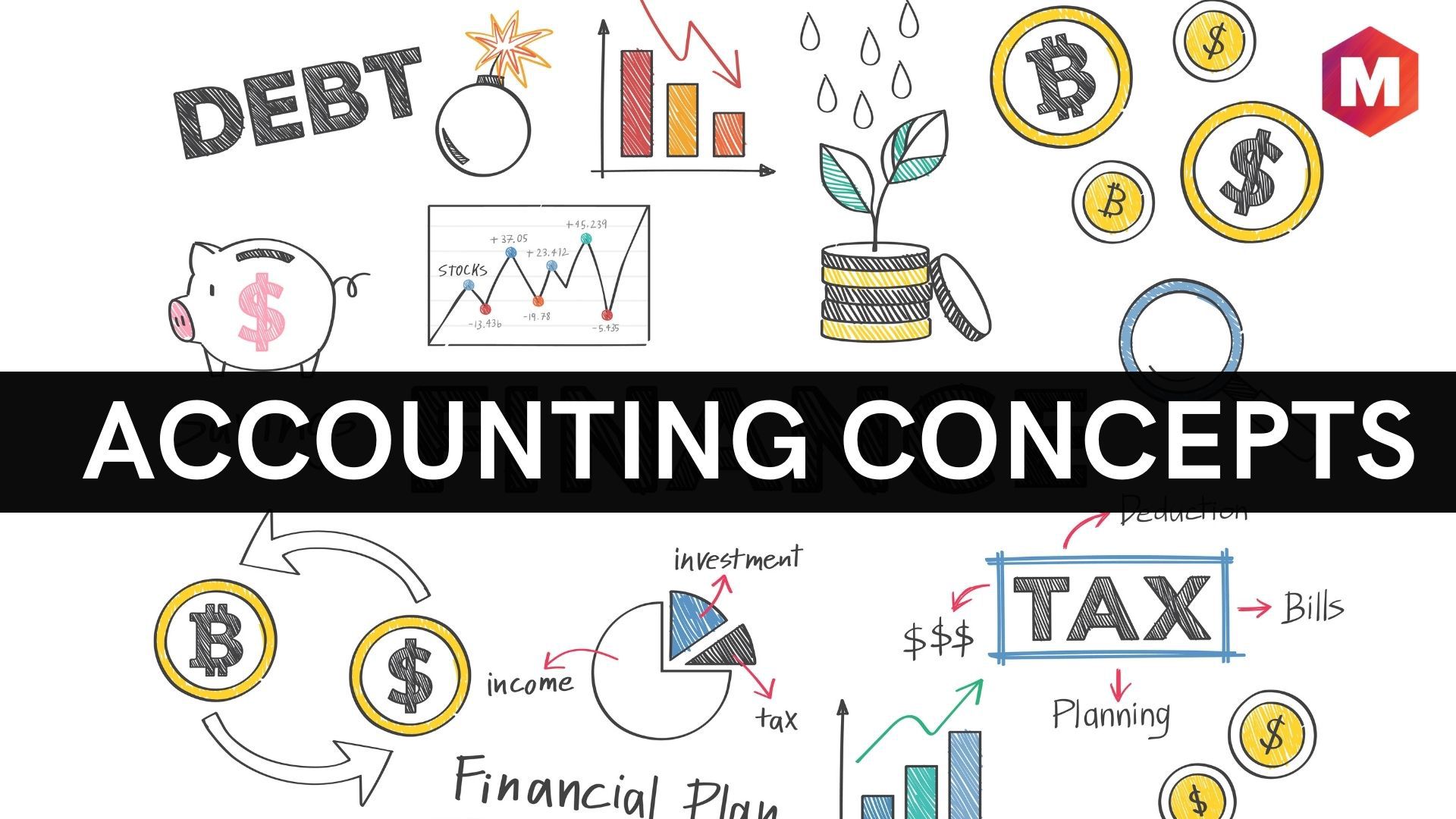
Accounting Concepts - Meaning And Its Types | Marketing91
Accounting Concepts – Meaning And Its Types
July 10, 2021 By Hitesh Bhasin Tagged With: Accounting
Table of Contents
What is Accounting Concepts?
Definition: Accounting concepts are defined as the fundamental rules, assumptions, and principles that work as the foundations of preparing accounts and bookkeeping business transactions.
Accounting is the process of analyzing, classifying, summarising, and recording data so that it becomes beneficial for companies and interested parties. In accounting, some accounting concepts are widely used in the process of accounting.
Accounting concepts are a list of rules which an accountant can use in the form of guidelines to manage the accounts associated with financial transactions in different accounting situations.
The concepts have further been integrated into different accounting standards. It is done to ensure that any user implementing the standards does not find the accounting concepts to be contradictory.
These are the number of concepts that one must understand to do accounting properly. These concepts include all the aspects of accounting.
Types of Basic Accounting Concepts
1. Business Entity Concept
In this accounting concept, it is said that both the business and the owners of the business are two separate things. The business is wholly separated from its owners.
That is why it is mandatory to record all the transactions in the business’s accounts, not in the accounts of the owners. It is crucial to record all the transactions correctly without any effects on the owners of the business.
2. Going Concern Concept
According to this going concern concept, it is assumed that the business must keep continuing its business and fulfill its all obligations. In other words, the financial statements of a business are recorded in the assumption that the business will continue its operations till the undefined period.
In this concept, all assets and liabilities of the business are recognized based on the business’s productivity and not on the current realizable.
3. Money Measurement Concept
In accounting, it is mandatory to record all the transactions in terms of money. This means in the financial statements, and the accounting books must contain only the quantitative values, not the qualitative values.
Due to this accounting concept, all the fixed assets of a business, such as land, buildings, machinery, etc., are measured and recorded in terms of money, not in the number of areas. Thus, in a business, it is imperative to look after monetary values.
4. Cost Concept
In a business, accounting works based on historical costs. In simple words, when some land or building, or machinery is purchased in a business, the amount that is recorded is that amount of purchasing if that time.
Thus, all the recorded transactions in the books of accounts are all based on historical costs and not on the present cost. Also, after recording a purchase of assets, the depreciation is done on those assets to find out the current value of the particular asset.
5. Accounting Period Concept
Business is considered the body of operations, purchases, sales, and investment regularly till an undefined period. Thus, to ascertain the business’s position, it is essential to look after the accounting statements of a particular period.
This period is known as the accounting period. The accounting period is usually 365 days or 52 weeks. Ideally, starts on 1st April and ends on 31st March. In some businesses, the accounting period may be of 3 months or six months also.
6. Dual Aspect Concept
This is considered one of the basic concepts of accounting. Every business works on aspects, i.e. giving and taking. That is why, when any transaction is recorded, it has a dual effect on the business. For example, when a business buys an asset, then the asset is coming in, and cash is going out.
Thus, when recording this transaction in the books of accounting, assets will be increased, and cash will be decreased.
7. Matching Concept
Coordinating with the rule is the bookkeeping. It is necessary that the costs brought about during a period must be recorded in the same period in which the connected incomes are acquired. This rule perceives that organizations should cause costs to procure incomes.
It is one of the essential principles of Generally Accepted Accounting Principles (GAAP). The coordinating with rule depends on the circumstances and logical results relationship. In the event that there are no circumstances and logical results relationship, the bookkeeper will charge the expense to the cost right away.
8. Realization Concept
As per this concept, it is assumed that the income is only said to be realized when you receive it. Till then, the revenue is not said to be realized. For example, If a business sells a product to a customer on a credit basis, the money is not yet received, then the amount couldn’t be treated as earned.
Also, on the other hand, if a customer did advance payment for any product, but the ownership of the product is not yet shifted to the customer, then you can’t treat this money as the earned money. Only those revenue and income can be treated as earned when they are realized.
9. Balance Sheet Equation Concept
This concept is considered the extension of the matching concept. Under this concept, there is an equation of a balance sheet that is to be satisfied to treat the balance sheet properly. In other words, all the liabilities and assets must be equal to satisfy the balance sheet, for example.
If a business buys an asset for? 1,00,000 on a credit basis, then the asset side will increase by? 1,00,000, and the liability side will also increase with 1,00,000. Thus both the assets and liability side matches. If it doesn’t match, then there are some errors or omissions in the books of accounts.
Therefore, the equation if the balance sheet is:
Expenses (addition) Loss (addition) Assets = Income (addition) Gains (addition) Liabilities
10. Verifiable and objective evidence concept
In accounting, it is said that all the transactions and the terms that are recorded in the books of accounts must be verifiable. All the transactions that were made in the books of accounts by the companies must have some justifiable evidence of such transactions.
If there is no evidence found for any of the transactions in the books, then it will be considered a faulty transaction. When an auditor comes to check the accounts of the company, then he must verify all the transactions that are recorded, and the objective of such transactions must be present. Thus, the companies need to make their accounts free from any errors and keep the evidence of every transaction.
11. Accrual Accounting Concept
According to the accruals concept, revenues are supposed to be recognized when earned, while on the other hand expenses should be recognized when assets are fully consumed.
This concept guides the situations when businesses can recognize profit and loss accrual basis as per the cash received from customers or the amount of money is paid to suppliers and employees. Auditors should also certify those financial statements that are prepared as per the accrual concept.
Wrap Up!
On the concluding note, we hope you would have understood the role of these concepts in forming the basis of financial accounting.
They are incredibly useful in collecting, managing, summarizing, and presenting the financial information associated with business transactions.
What are your thoughts about the importance of accounting concepts while delving into an accounting method or accounting equation? Share your opinion with us in the comment section below.








